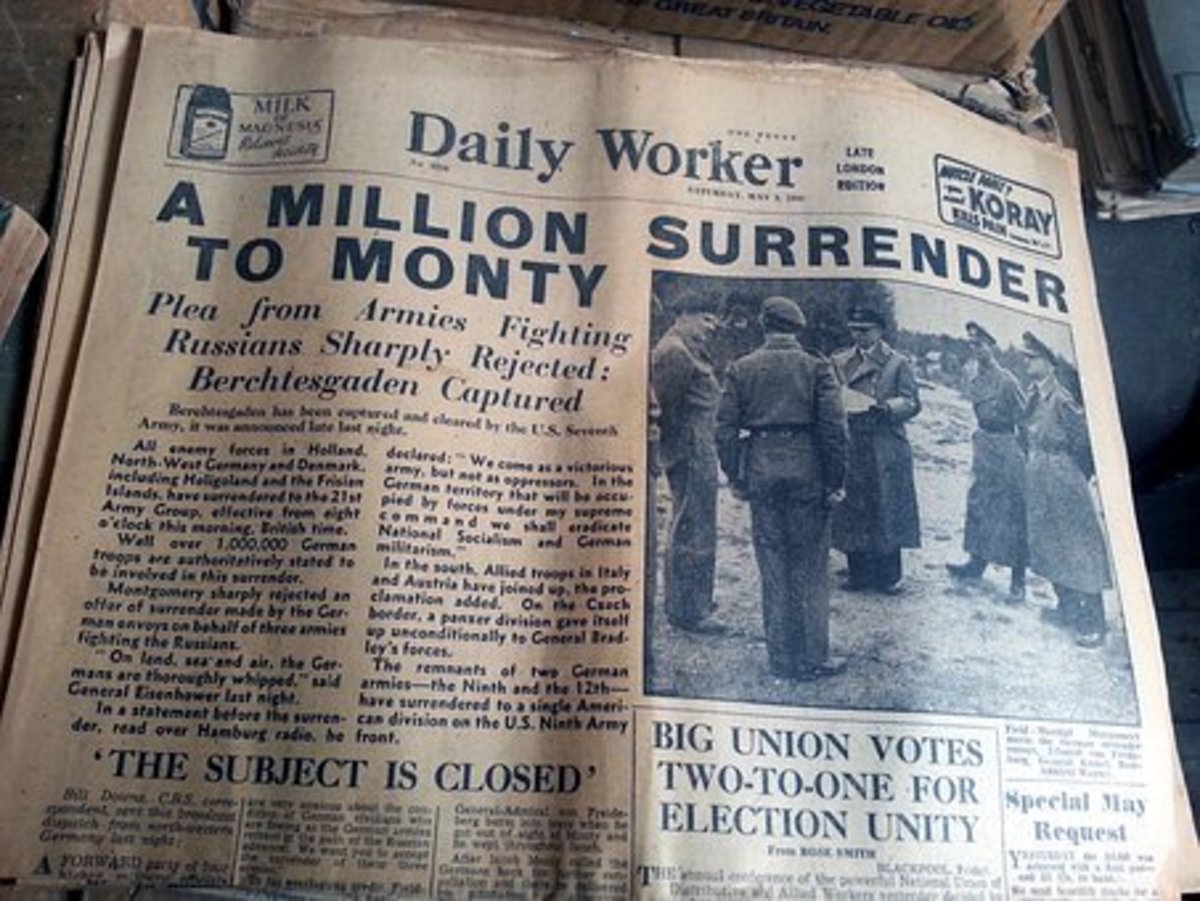Online News vs. Newspapers

I shall begin this discussion by examining the impact of journalism in a digital environment and compare it with the newspapers. By doing so, I will provide several relative advantages and limitations of online news. Additionally, I would have to point out the variation of journalism standard between digital and print, and to see whether the growing readership of digital journalism overtakes the other. I will then draw a brief conclusion (hopefully) that is new and an informative.
The impact of digital technology in ‘real journalism’ is at least questioned or discussed. Notice as I said ‘real journalism’, that is because there are ‘current affairs’ on social media and/or blogs who are penned by merely ‘amateurs’ or so called ‘citizen journalists’. They then become, to a certain extent, the ‘source of news and information’. The journalists find them ‘useful’ as well in a way of ‘contextualising their works’, to having ‘different angles’ and to having ‘hard-hitting’ stories. One relative example is that, the 9/11 terrorist attack in the United States on September 11, 2001, it was first reported by the citizen journalists who were close at the incident and took images and videos and unconsciously spread the news instantly by means of social media (Allan, S. & Thorsen, E. p. 23).
They also offered a major role in the story of Princess Diana’s death[1], the Oklahoma City bombing in 2005[2], 9.1 magnitude underwater earthquake in Indonesia in 2004[3] and 2009 Iranian election protests[4] and other breaking news, domestically and internationally! So clearly they are too valuable in that respect.
It is very apparent today that accessing and/or passing information one after another are radically transformed. This includes ‘when and how they will get it, where they will get if from and who they will get it from.’ Provided, of course, they have access to the internet.
The founder, Chairman and CEO of global media holding company News Corporation, Rupert Murdoch, describes his two daughters as ‘digital natives’, that is, young people who will ‘never know a world without ubiquitous broadband internet access.’ (Allan, 2006, p. 2) Perhaps it is because they are ‘modern’, ‘classy’ and ‘more convenient’ than the traditional. And that they access online news and/or online articles using their iPads/tablets/apps, mobile, and of course, their pcs’ – indeed, they are already happening. So that suggests, the availability of the technology, anywhere elsewhere eyewitnesses will be able to post their ‘news’ anywhere anytime online. Allan (2006, p. 16) added in writing that they are ‘…often with heart-rending details.’
Apart from that, journalists could expect interaction in the news online. This is linked to Allan’s book: Journalism and the Internet (2006, p. 3) he writes: ‘…Individuals who actively question, probe and seek out different angles in the news online – throws into sharp relief some of the more familiar assumptions that typically guide industry judgement about how best to extend the reach of newspapers via internet.’
From editors’ point of view, online news are good for they can see what has been read, by what type of reader and most importantly what has not been read (that is, through the use of web analytics software). Therefore, publishers can analyse the qualitative and quantitative data on their website and competitors (Dubios, 2010).
The question is, is this suggests that the digital journalism overtakes the print journalism? Is this means that the standard of journalism will inevitably suffer?
In the print news industry, this is perhaps a ‘danger’ the fact that the ‘technology-savvy young people’ are increasing and likely turn the web not only as their news medium of choice but also as their source of information. However, whether it is from newspapers or any other source (that is, blogs, discussion forums, social media and such), have a different set of expectations about the kind of news the readers will get. By all means, not all information online are ‘accurate’ especially again when it is written by ‘amateurs’. However, by contrast, online news that are from BBC and other broadcasting companies that are highly recognised worldwide are indeed the exceptions.
Is digital journalism overtakes the prints?
For February 2013, the statistics from ABC clearly shows that there has been a considerable decline on sales of the national dalies’ newspapers. The highest downfall is The Independent with -28.56%. The average sales they have had from last year was105, 160 down to 75, 125 for this year whereas the least decrease on sales is The Times with a percentage of -0.94% and with an average sales of 397, 549 from last year down to 393, 814 this year and so on.
On the other hand, the national Sunday newspapers’ sales are also declining. This report is from ABCs: National Sundays for February 2013, it was reported that the highest downfall is Daily Star Sunday with -43.23%. Their last year’s average sales were £599, 078, compared this year is only £340, 105 (that is, £258, 973 loss) and so on.
Interestingly, there is a traffic growth of national newspaper online, according to ABC’s report. For example: Mail Online, they have recorded a 13% rise and that is, ‘almost 1 million average daily unique browsers month on month to end up just a shade below 8 million – a new traffic record’, according to the latest Audit of Bureau of Circulations figures.
On balance, it is obvious that the online news readership is increasing and that is overtaking the newspapers. This is because news is available online for free. Although, there are issues rising about ‘accuracy’, ‘quality and content’ when an article is written by a ‘citizen-journalists’, it is not merely loosing the standard of journalism. In fact, it can also enrich the news because it allows the readers to interact about the facts. Again, of course, readers have a freedom of choice, but the quality of news they will get from the social media and from the media mainstream are different. In addition, I think it is possible improving the standard of journalism because online has potential for a much larger readership. Whether this is considered as a ‘threat’ to the news prints industry, in my opinion, I don’t see it that way, because there will always be a major news venues (like I mentioned above). These entities have a high standard of journalism. So today we have the internet where everything is at least questioned or discussed. I'm not sure it gets anywhere, but it's easier to hear broader and more dissenting views via the internet.
[1] Parry, R. 1997. Princess Diana’s Death & the Media Monster. The Consortium. [Online]. N.d. Available at: http://webcache.googleusercontent.com/search?q=cache:http://www.consortiumnews.com/archive/story42.html. Accessed 18th March 2013.
[2] NBCNEWS. 2005. Citizen Journalist: Remembering Oklahoma City. [Online]. 26th April 2005. Available at: http://www.nbcnews.com/id/7517865/#.UUhgRByGHcc. Accessed 18th March 2013.
[3] Shanahan, M. 2009. Timeline: Citizen Journalism. [Online]. N.d. Available at: http://www.slideshare.net/mariekshan/timeline-citizen-journalism. Accessed 18th March 2013.
[4] Ibid.
List of references
Allan, S. 2006. Online News: Journalism and The Internet. [E-book]. Available at: http://reader.eblib.com/(S(b242ozgm0vplb4z2ugzaxpzn))/Reader.aspx?p=316247&o=300&u=6l4N1RZiNnJGmAjo2GJNCo857Qo%3d&t=1363628987&h=EBE1AB71156A8897006F7674C5CCF06E9FD89544&s=16298798&ut=918&pg=1&r=img&c=-1&pat=n#. Accessed 13th March 2013.
Thorsen, E. 2009. Citizen Journalism: Global Perspectives. [E-book]. Available at: http://books.google.co.uk/books?id=MFh_D-eGQWsC&pg=PA23&lpg=PA23&dq=september+11+citizen+journalism&source=bl&ots=WaxuisEqEX&sig=FO1ZX20HfeZviJzRM6IW0aoA_P4&hl=en&sa=X&ei=pEVHUZaOOMmM0wWUi4CwDw&ved=0CE0Q6AEwBA#v=onepage&q=september%2011%20citizen%20journalism&f=false. Accessed 18th March 2013.
Theguardian. 2013. ABCs: National Sunday newspaper circulation February 2013. [Online]. 08th March 2013. Available at: http://www.guardian.co.uk/media/table/2013/mar/08/abcs-national-newspapers1. Accessed 18th March 2013.
Theguardian. 2013. ABCs: National daily newspaper circulation February 2013. [Online]. 08th March 2013. Available at: http://www.guardian.co.uk/media/table/2013/mar/08/abcs-national-newspapers. Accessed 18th March 2013.
Kiss, J. 2013. National newspaper websites report bumper traffic growth. Theguardian. [Online]. 21st March 2013. Available at: http://www.guardian.co.uk/media/table/2013/mar/08/abcs-national-newspapers. Accessed 18th March 2013.guardi n.
Lou Dubois. 2010. 11 Best Web Analytics Tools. Inc. [Online]. 31st Dec. 2010. Available at: http://www.inc.com/guides/12/2010/11-best-web-analytics-tools.html. Accessed on 14/03/13.
NBCNEWS. 2005. Citizen Journalist: Remembering Oklahoma City. [Online]. 26th April 2005. Available at: http://www.nbcnews.com/id/7517865/#.UUhgRByGHcc. Accessed 18th March 2013.
Parry, R. 1997. Princess Diana’s Death & the Media Monster. The Consortium. [Online]. N.d. Available at: http://webcache.googleusercontent.com/search?q=cache:http://www.consortiumnews.com/archive/story42.html. Accessed 18th March 2013.
Shanahan, M. 2009. Timeline: Citizen Journalism. [Online]. N.d. Available at: http://www.slideshare.net/mariekshan/timeline-citizen-journalism. Accessed 18th March 2013.








